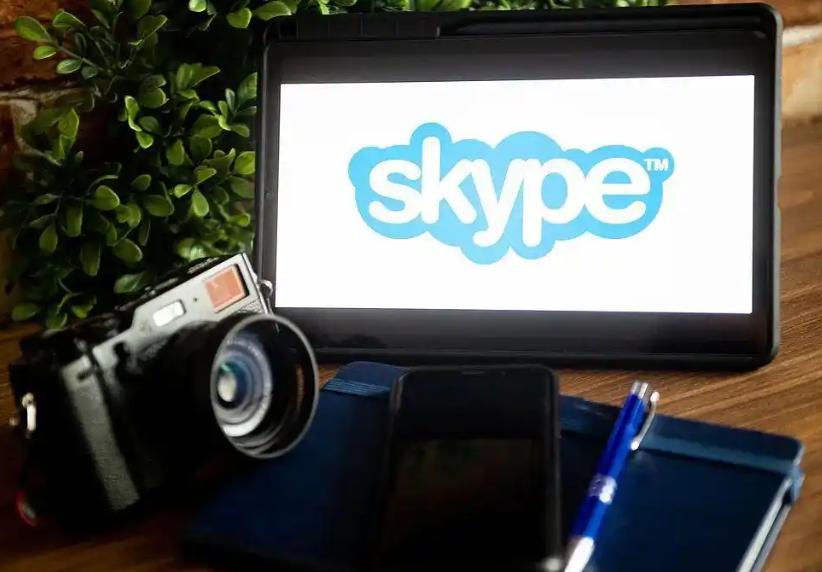
On May 5th local time, Skype, the instant messaging software owned by Microsoft Corporation of the United States, officially ceased operations. Its core functions will be migrated to another communication software promoted by Microsoft - Teams. The company also said that users' login information will be available for the free version of Microsoft Teams "in the coming days". This Internet-based voice and video call service was once the most popular remote communication tool in the mid-2000s. Skype, the once dominant Internet voice and video calling software in the industry, has officially come to an end, marking the conclusion of its more than 20-year operational history. Initially, Skype was a tool that enabled users to make free online calls. Microsoft once stated that Skype had over 300 million monthly active users in 2016, but by 2023, its daily active users had shrunk to 36 million.
This decision by Microsoft has brought complex and multi-faceted impacts to many aspects, especially in the field of technology. The first is the impact on instant messaging technology. The closure of Skype indicates that Microsoft is concentrating its resources on the development of new features for Teams, such as the deep integration of AI tools. This strategic adjustment will drive the development of instant messaging and collaboration platforms towards intelligence, prompting other manufacturers to accelerate technological innovation to maintain their competitiveness. Teams demonstrates the advantages of a "one-stop" collaboration platform by integrating modules such as video conferencing, file sharing, and task management. This trend will prompt other enterprises in the industry to re-examine their product architectures and drive similar platforms to evolve towards multi-functionality and integration.
The second is the impact on the landscape of the technology industry. The withdrawal of Skype has made Teams a core product of Microsoft in the field of collaboration. Its deep integration with Office 365 will further consolidate its market position. This change may force competitors such as Zoom and Slack to accelerate the iteration of features. For instance, Zoom's recently launched "Smart Meeting Summary" feature is a direct response to Teams. Microsoft has formed an ecological closed loop of "software + collaboration + cloud" through the binding of Teams with Azure cloud services. This model will drive the industry towards integration. For instance, the integration of Google Workspace and Meet, as well as the collaboration between Slack and Salesforce, all reflect the trend of enterprise communication tools evolving towards an ecosystem.
The third is the impact on AI technology. The real-time voice transcription and background blurring functions built into Teams have become standard features in the industry. The shutdown of Skype marks the inevitability of the transformation of traditional communication tools towards intelligence. In the future, collaboration platforms will further integrate AI technologies, such as intelligent meeting assistants and sentiment analysis. Teams has supported participation in meetings through digital avatars, while the holographic projection meetings of Apple Vision Pro 3 and Musk's Neuralink's "brainwave call" technology indicate that communication tools will break through the limitations of two-dimensional screens. The two-dimensional video call mode of Skype has become outdated in terms of technology generations, and its withdrawal has provided market space for new technologies.
The fourth is the impact on Microsoft and users. Microsoft shut down Skype to focus its resources on the development of new features for Teams, including artificial intelligence (AI) tools, etc., in order to further enhance the competitiveness and user experience of Teams. Microsoft can reduce the cost input in the operation and maintenance of the Skype business, and at the same time, it will also help the development of Teams bring new revenue growth. The shutdown of Skype may make some users feel reluctant and even trigger some negative comments. But in the long run, if Teams can better meet the needs of users, it will also help enhance Microsoft's overall brand image in the communication field. Some users may encounter communication difficulties with these contacts because they have not migrated to Teams. When enterprises communicate with external partners, communication barriers may also arise if the other party has not been simultaneously migrated to Teams.
To sum up, the end of Skype is not only the rise and fall of a single product, but also a microcosm of technological iteration and market evolution in the technology industry. The legacy of Skype will drive the industry to further evolve towards AI-driven, multimodal interaction and full-scenario collaboration.

On January 4th local time, Trump warned India that if it does not limit its purchase of Russian oil, the United States will continue to raise tariffs on Indian products. Trump's latest warning sent shockwaves through the Indian financial market in just one day.
On January 4th local time, Trump warned India that if it do…
In October 2025, the US trade deficit narrowed unexpectedly…
According to the British media CoinJournal, recently, due t…
In January 2026, US President Trump once again set his sigh…
Europe is facing a crucial strategic choice: In the face of…
On New Year's Day 2026, BMW China announced a "systematic v…